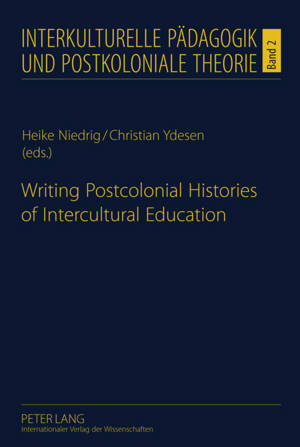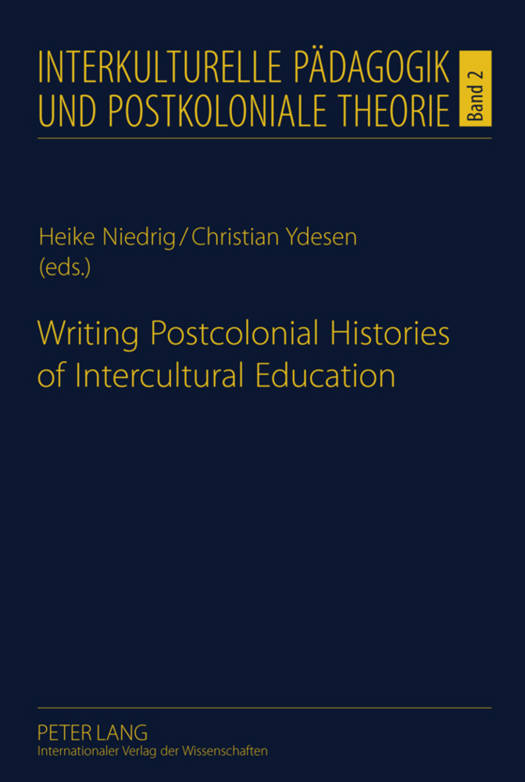
Door een staking bij bpost kan je online bestelling op dit moment iets langer onderweg zijn dan voorzien. Dringend iets nodig? Onze winkels ontvangen jou met open armen!
- Afhalen na 1 uur in een winkel met voorraad
- Gratis thuislevering in België vanaf € 30
- Ruim aanbod met 7 miljoen producten
Door een staking bij bpost kan je online bestelling op dit moment iets langer onderweg zijn dan voorzien. Dringend iets nodig? Onze winkels ontvangen jou met open armen!
- Afhalen na 1 uur in een winkel met voorraad
- Gratis thuislevering in België vanaf € 30
- Ruim aanbod met 7 miljoen producten
Zoeken
Writing Postcolonial Histories of Intercultural Education
€ 75,45
+ 150 punten
Omschrijving
Bringing together a group of international researchers from two educational sub-disciplines - «History of Education» and «Intercultural Education» - the contributions to this volume provide insights into the (pre-)history of intercultural issues in education across a vast range of historical, national-geographical and political contexts. The anthology takes its readers on a fascinating journey around the globe, presenting case studies from Asia, Africa, Europe and America. The coherence of the journey is found in recurring themes and questions, such as: How does the discourse on «multiculturalism» or «intercultural learning» construct the norm and the Others in these educational settings? Who has the power of definition? And what are the functions and effects of these processes of Othering?
Specificaties
Betrokkenen
- Uitgeverij:
Inhoud
- Aantal bladzijden:
- 318
- Taal:
- Engels
- Reeks:
- Reeksnummer:
- nr. 2
Eigenschappen
- Productcode (EAN):
- 9783631609040
- Verschijningsdatum:
- 18/08/2011
- Uitvoering:
- Hardcover
- Formaat:
- Genaaid
- Afmetingen:
- 148 mm x 210 mm
- Gewicht:
- 509 g

Alleen bij Standaard Boekhandel
+ 150 punten op je klantenkaart van Standaard Boekhandel
Beoordelingen
We publiceren alleen reviews die voldoen aan de voorwaarden voor reviews. Bekijk onze voorwaarden voor reviews.










